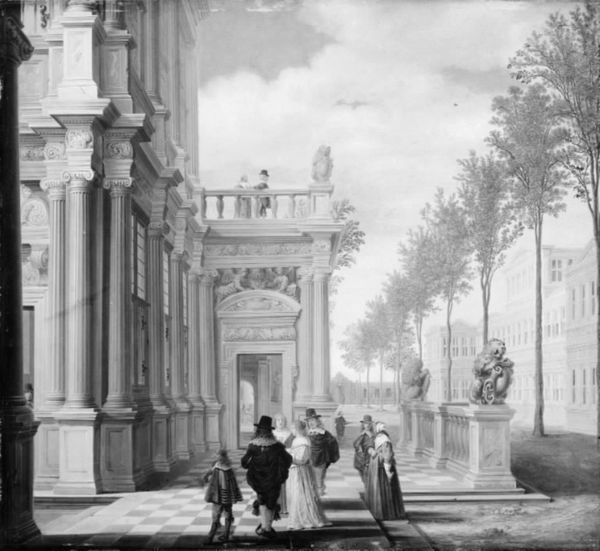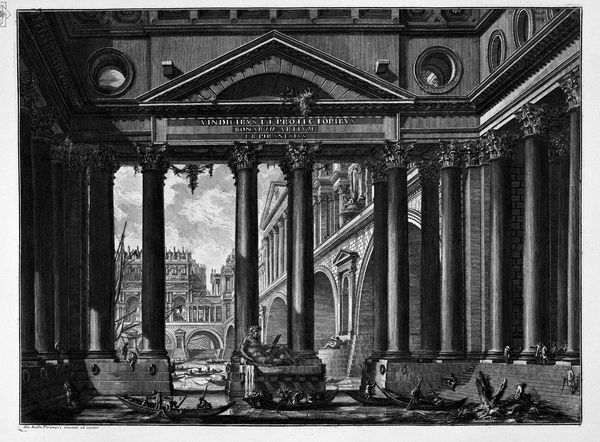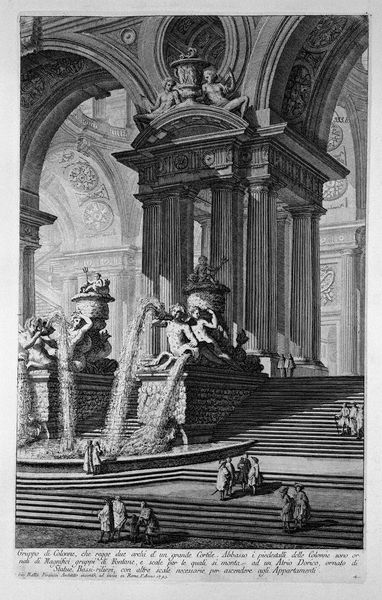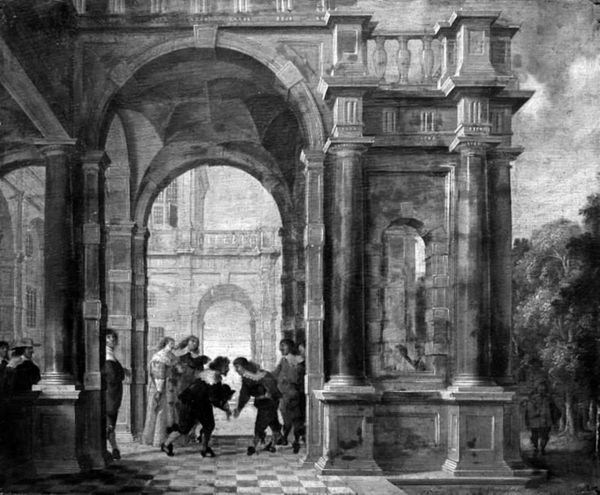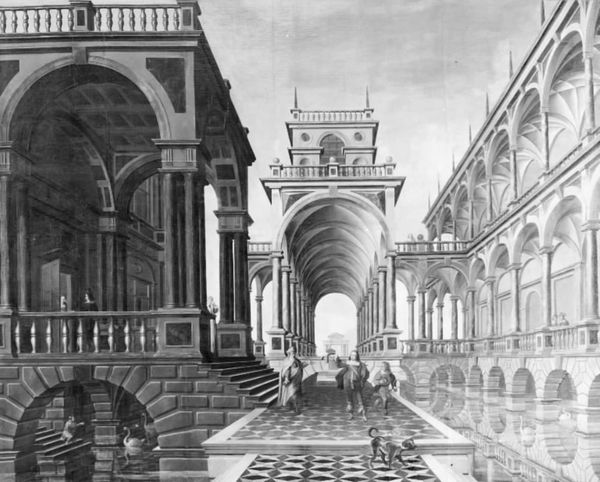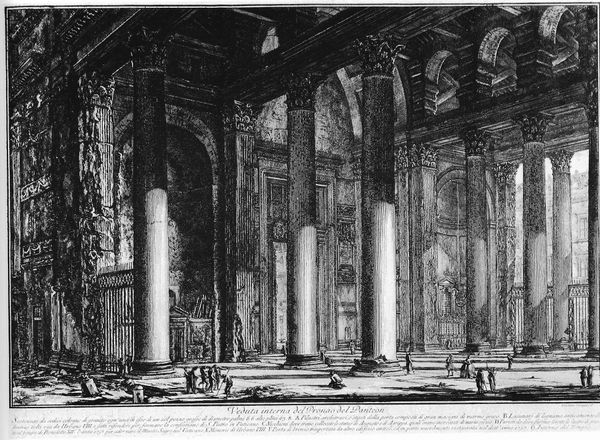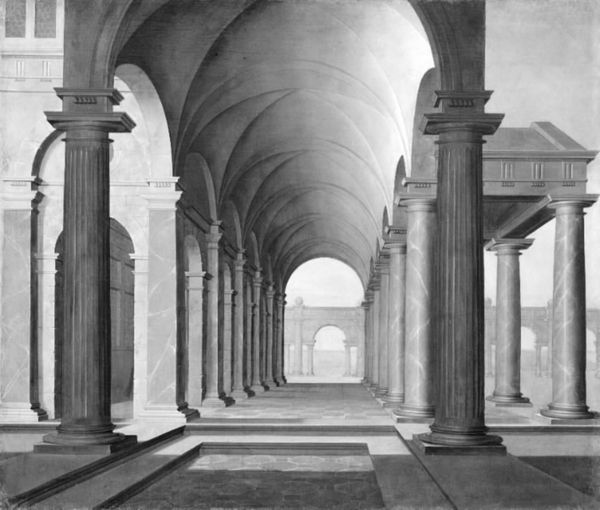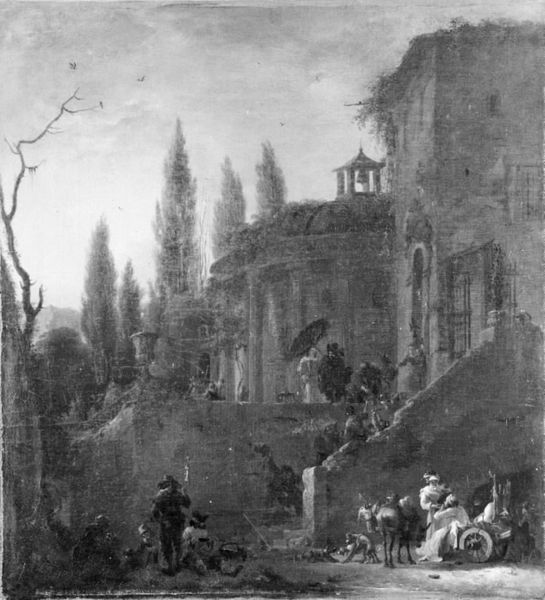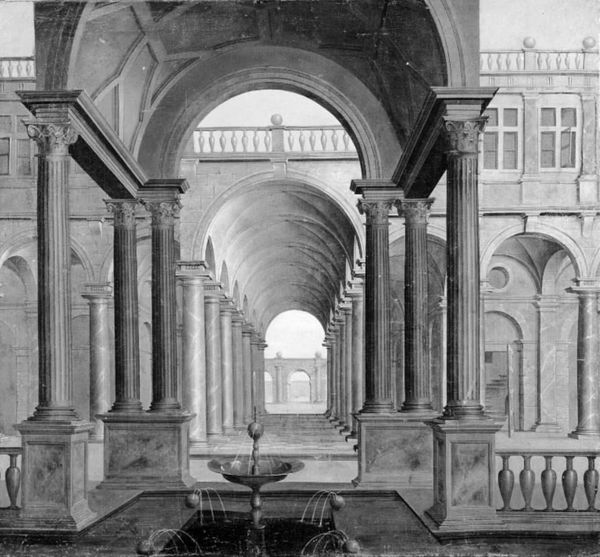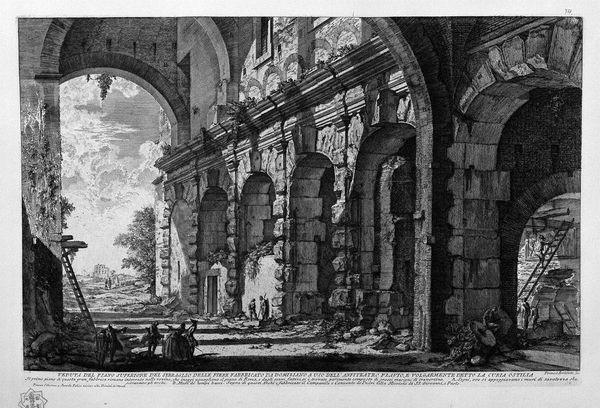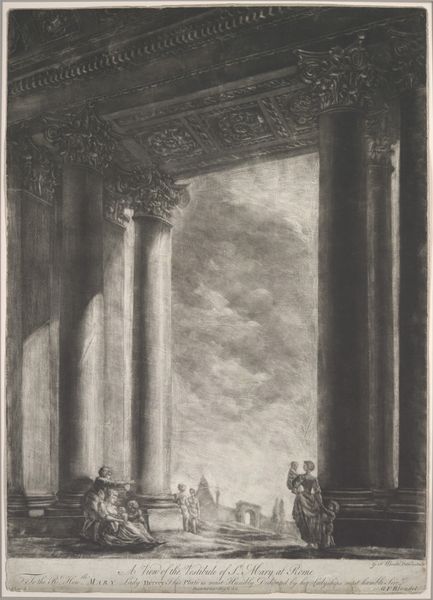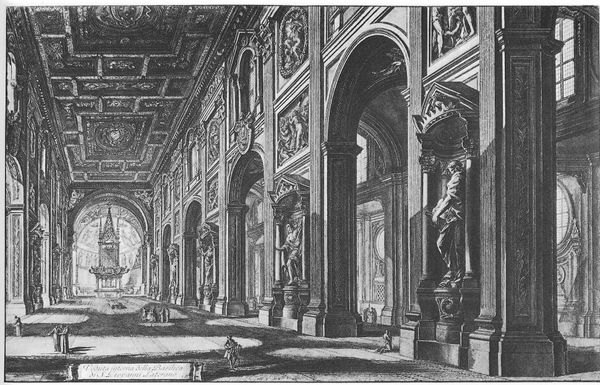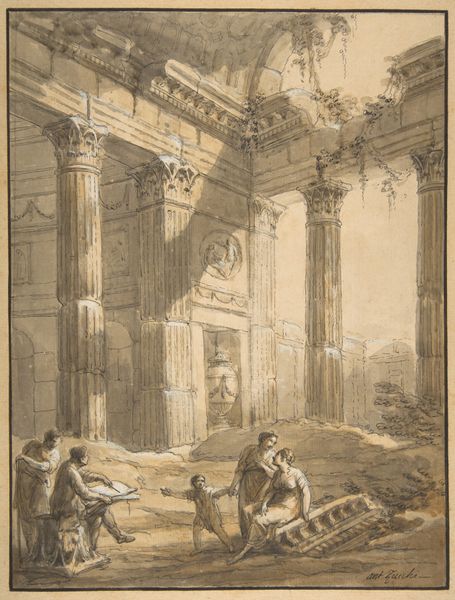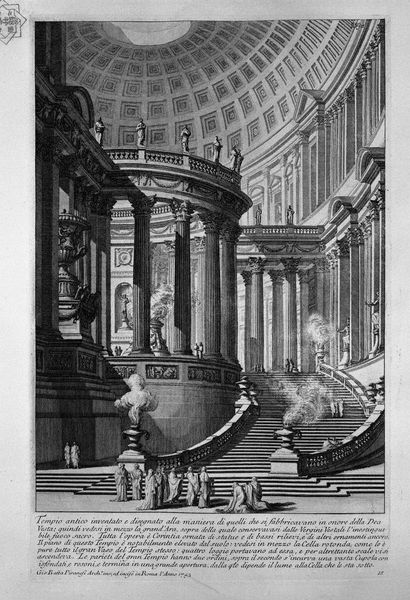
drawing, sculpture, graphite
#
drawing
#
pencil sketch
#
landscape
#
classical-realism
#
charcoal drawing
#
charcoal art
#
pencil drawing
#
sculpture
#
graphite
#
cityscape
#
charcoal
#
graphite
Dimensions: 12 3/8 × 10 3/8 in. (31.4 × 26.5 cm)
Copyright: Public Domain
Editor: Here we have a graphite and charcoal drawing called "Colonnade and Gardens of the Medici Palace," created after 1870. The scene feels both grand and intimate, doesn’t it? All those classical architectural elements are softened by the leisurely figures. What stands out to you about this piece? Curator: The drawing depicts a specific kind of nineteenth-century European cultural tourism and the art market that supported it. These “Grand Tour” drawings of Italian monuments were popular souvenirs, purchased and displayed to demonstrate one’s cultured appreciation of classical civilization. How does the drawing itself speak to that performance of cultural capital, do you think? Editor: I see what you mean! It’s like… buying a piece of history and showing it off. The attention to detail in the architecture almost feels like a selling point – ‘Look how accurately I’ve captured this important landmark.’ But were these always accurate depictions? Curator: That’s an insightful question. Consider the idealized representation of the Medici Palace gardens and the presence of genteel figures in contemporary dress, almost like actors on a stage. What does that juxtaposition suggest to you about the drawing’s relationship to reality versus fantasy? Editor: I guess it was more about creating an image of cultured leisure than an accurate historical document? The artist is selling a lifestyle, not just a building. Curator: Exactly. This drawing exemplifies how art served – and still serves – as a tool for shaping and reinforcing social hierarchies and cultural values. Editor: That gives me a lot to think about. It’s not just a pretty picture; it’s a statement about who had the time and resources to appreciate art and history. Curator: Indeed. And how museums themselves have historically reinforced those values by collecting and displaying such works.
Comments
No comments
Be the first to comment and join the conversation on the ultimate creative platform.
